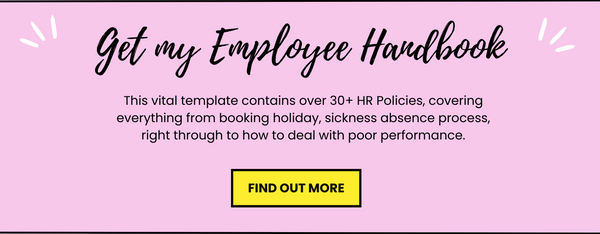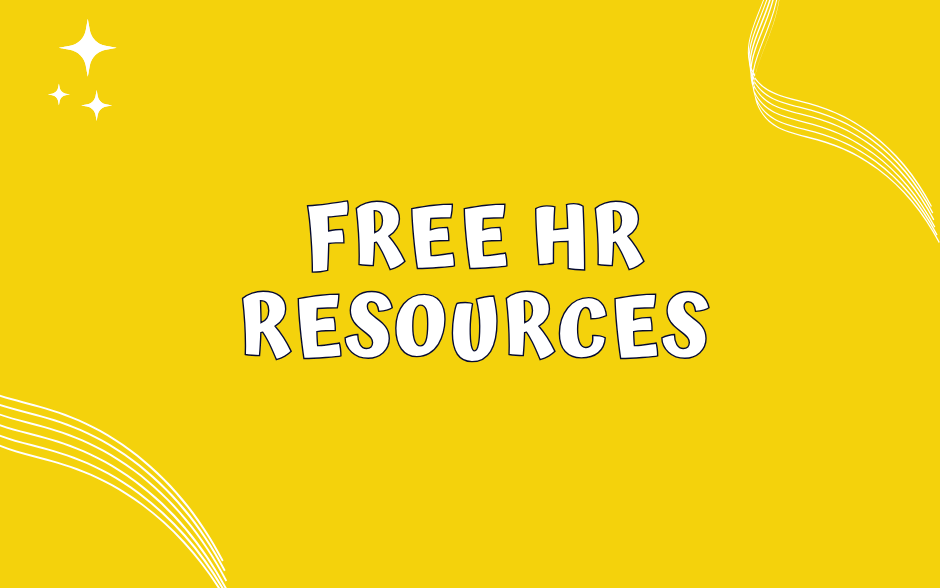Is Being Overweight a Protected Characteristic in the UK?

Weight discrimination is an often-overlooked form of bias that affects many candidates applying for jobs and employees in the workplace. This is where someone overweight is treated badly or unfairly based on their body weight or size.
With nearly half (46%) of people living with obesity reported that their mental health was negatively affected by COVID-19, with over a quarter (26%) saying it is still worse than it was before, this is an important topic for us to chat about.
If you – or any of your employees – choose to treat someone differently because of their weight, it’s not only mean and unkind, but you could get yourself into a whole heap of trouble in other ways. Especially if it’s related to a disability. And as a busy, business owner, you’ll be wanting to avoid that like the plague!
Read this blog to understand whether being overweight a protected characteristic and make sure size DOESN’T matter in your business to avoid making a costly legal mistake. 👌
WHAT IS WEIGHT DISCRIMINATION?
Weight discrimination involves treating individuals unfairly based on their body weight or size. This can show up in various ways, from candidates not getting a job, pay rise or promotion to being teased or bullied in the workplace.
It's a form of discrimination that not only affects an individual's professional growth but also takes a toll on their mental and emotional well-being.
WHY THIS MATTERS 🤷
According to the NHS, over two-thirds of UK adults are above a ‘healthy’ weight. So, the chances are, there are – or will be – overweight people in your workplace.
The latest figures from Public Health England said there were 16 million days of sickness absence reported due to obesity. That number has probably gone up by now. So, again you may need to consider whether this is an issue for your organisation.
But, before thinking about the commercial side, let’s take a human approach.
The prevalence of bad mental health among people living with obesity has been made a lot worse by the Coronavirus pandemic, with a rise of depression.
Moreover, six in ten British people living with obesity or morbid obesity (60%) say they have felt low self esteem in the past fortnight), with four in ten (42%) suffering from the feeling several times a week or more.
Obesity itself can also be very complex and Employers can underestimate how complex it really is. How? Mental health, genetics or underlying medical conditions play a part in how big a person is.
You have a duty of care and a legal obligation to ensure that employees living with obesity have access to employment and interventions that could help improve their health and wellbeing at work.
You must also ensure that risk assessments and workplace adjustments are made so that employees living with obesity are not discriminated against at work.
WHEN WEIGHT DISCRIMINATION CAN OCCUR IN THE WORKPLACE
People who discriminate against those who are overweight often believe a person’s obesity is down to their own lack of control or discipline, which is not always true. This is often the source of their unkindness and actually ends up making the person feel worse. 👎
As an employer, it’s your responsibility to make sure there’s fairness and equality in your business, where everyone is treated with dignity and respect.
A culture where ‘fattest’ banter is allowed, could not only upset your workers, and stop them from doing a great job for you. But it could one day land you in a lot of trouble. 😱
Weight discrimination can happen at any stage of the employment journey. For example, when you’re:
- Recruiting
- Reviewing performance
- Negotiating salaries and bonuses
- Distributing work
- Organising work rotas
‘Unconscious bias’ is where weight discrimination often rears its ugly head. This is where you or your employees think less of a person because of their weight.
It’s called ‘unconscious’ because you might not even be aware that you’re judging somebody in this way. For example, you might automatically and unknowingly be harder on an employee during a performance review, because they’re fat and therefore, you have biases of this being connected to laziness.
This is perhaps because you’ve always felt this way based on your past experiences, or because of who and what you’ve been influenced by throughout the course of your life.
THE LEGAL RISK OF WEIGHT DISCRIMINATION 🤔
If you discriminate against somebody solely because of one or more of the below characteristics, then you’re breaking the law.
- Age
- Gender reassignment
- Being married or in a civil partnership
- Being pregnant or on maternity leave
- Disability
- Race including colour, nationality, ethnic or national origin
- Religion or belief
- Sex
- Sexual orientation
As you can see from the above list, ‘weight’ ISN’T currently a ‘protected characteristic’. However, there are discussions happening right now to explore whether it should be.
So today, while it isn’t unlawful to discriminate against a person because of their weight, it could be considered unlawful to dismiss a person because of their weight or harass them because of a disability caused by their obesity.
COULD WEIGHT BE CLASSED AS A DISABILITY?
The link between obesity and disability is something which employers should be aware of.
For example, you might be more at risk of being overweight because you’re unable to do physical exercise. Or, you may have a mental health issue that affects your relationship with food. So, if you treat an employee differently because of their weight, you could inadvertently be discriminating against their disability, which is against the law.
According to the Equality Act 2010, “A person has a disability if they have a physical or mental impairment, and the impairment has a substantial and long-term adverse effect on their ability to carry out normal day-to-day activities.”
In a landmark court case, a childminder claimed he was sacked by a local council for being overweight. He brought his case to an employment tribunal. This then led to the European Court of Justice ruling that obesity can be a disability. If the employee can’t do their job because they are overweight, an employee should look to make reasonable adjustments, to support them.
HOW TO PREVENT WEIGHT DISCRIMINATION IN YOUR WORKPLACE
The best way to prevent weight discrimination in your workplace is to:
- Lead by example through your own words and actions
- Make sure you have HR policies in place to describe what behaviours you expect from your employees and what behaviours they can expect from you
- Think about adding wellness benefits to your offering
- You have a duty of care and a legal obligation to ensure that employees living with obesity have access to employment and interventions that could help improve their health and wellbeing at work.
- You must also ensure that risk assessments and workplace adjustments are made so that employees living with obesity are not discriminated against at work.
🛒 If you don’t have HR policies today, don’t worry. My Employee Handbook template contains over 30 HR policies that you can personalise for your own business. Check it out here.
TO SUM THINGS UP THEN
😥 Sadly, weight discrimination is a ‘thing’
📈 And as there are so many obese adults out there, it’s likely you have an overweight employee working for you already
🔎 That means, it’s your duty to understand what weight discrimination looks like and where it can crop up in the workplace
❌ Weight’s not a protected disability today
♿ However, when it’s linked to disability – as it often can be – you could be breaking the law if you discriminate against an employee in that position
📚 As a business owner, all you can do is lead by example and make sure your HR policies are in place to help stamp out weight discrimination on your watch!







